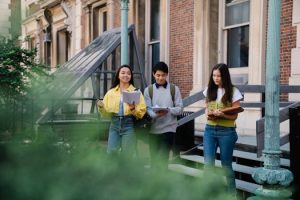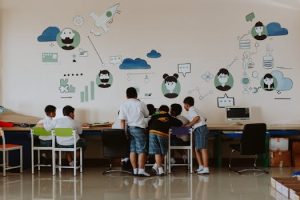Integrated Sustainability Learning
In today’s ever-changing world, the concept of sustainability has become crucial for businesses, organizations, and individuals alike. With the growing concerns about climate change and environmental degradation, there is a pressing need for integrating sustainability into every aspect of our lives. This is where the concept of Integrated Sustainability Learning (ISL) comes into play. ISL is a dynamic and holistic approach to education that focuses on creating a sustainable future by integrating sustainability principles into various disciplines. In this article, we will delve into the concept of Integrated Sustainability Learning and explore its significance in shaping a sustainable future.
The Basics of Integrated Sustainability Learning
Integrated Sustainability Learning, also known as Sustainability Literacy, is an educational approach that promotes a deep understanding of sustainability and equips individuals with the skills and knowledge to take sustainable actions. It goes beyond traditional environmental education and incorporates sustainability principles into various disciplines like science, economics, social studies, and arts. ISL is designed to cultivate critical thinking, problem-solving, and creativity, enabling individuals to develop a comprehensive understanding of the complex issues of sustainability and take informed action to address them.
The Roots of Integrated Sustainability Learning
The concept of ISL originated from the Brundtland Report, also known as “Our Common Future,” published by the United Nations World Commission on Environment and Development in 1987. It highlighted the urgent need for incorporating sustainable development principles into education to create a sustainable future. Since then, ISL has evolved and gained recognition as a vital tool for promoting sustainability education and action. Today, many schools, colleges, and universities have adopted ISL as a part of their curriculum, and organizations are incorporating it into their training and development programs.
The Key Principles of Integrated Sustainability Learning
ISL is based on three key principles that guide the integration of sustainability into education:
Interconnectedness
The first principle of ISL is that everything in the world is interconnected. It emphasizes the interdependence of humans, nature, and society and the need to view sustainability issues holistically. This principle encourages individuals to see beyond the boundaries of their discipline and explore the relationships between different systems to understand the bigger picture.
Long-term thinking
ISL promotes long-term thinking by emphasizing the need to consider the long-term consequences of our actions on social, economic, and environmental systems. It challenges the traditional short-term thinking and encourages individuals to think about how their actions today will impact the future. This principle is essential in creating a sustainable future that meets the needs of the present without compromising the ability of future generations to meet their own needs.
Action and reflection
The third principle of ISL is that education must be accompanied by action and reflection. It encourages individuals to apply their knowledge and skills to take sustainable actions and reflect on their impact. This reflective practice helps individuals critically assess their actions and enables them to make informed decisions that contribute to creating a sustainable future.
The Benefits of Integrated Sustainability Learning
ISL offers numerous benefits, not only for individuals but also for organizations and society as a whole:
Empowers individuals
ISL empowers individuals by equipping them with knowledge, skills, and values needed to take sustainable actions. It encourages individuals to think critically, challenge the status quo and drive positive change towards a sustainable future.
Fosters interdisciplinary collaboration
ISL breaks down the barriers between different disciplines and encourages collaboration to tackle complex sustainability issues. It brings together diverse perspectives and promotes innovative solutions that consider the social, economic, and environmental aspects of sustainability.
Creates a culture of sustainability
By integrating sustainability into education, ISL creates a culture of sustainability, where individuals are conscious of their impact on the environment and take responsibility for their actions. This culture encourages sustainable behaviors, leading to a more sustainable society.
The Future of Integrated Sustainability Learning
As we face global challenges such as climate change, depletion of natural resources, and social inequality, the need for integrated sustainability learning has never been more critical. It is essential to equip future generations with the knowledge, skills, and values to tackle these challenges and create a more sustainable future. Therefore, there is a need for continued efforts to incorporate ISL into education, training, and development programs, and to make sustainability literacy a core competency for individuals of all ages.
To conclude, Integrated Sustainability Learning is a powerful tool that can create a sustainable future by educating and empowering individuals to take informed and sustainable actions. It is not just a concept but a way of thinking that can transform the world into a better place for future generations.








